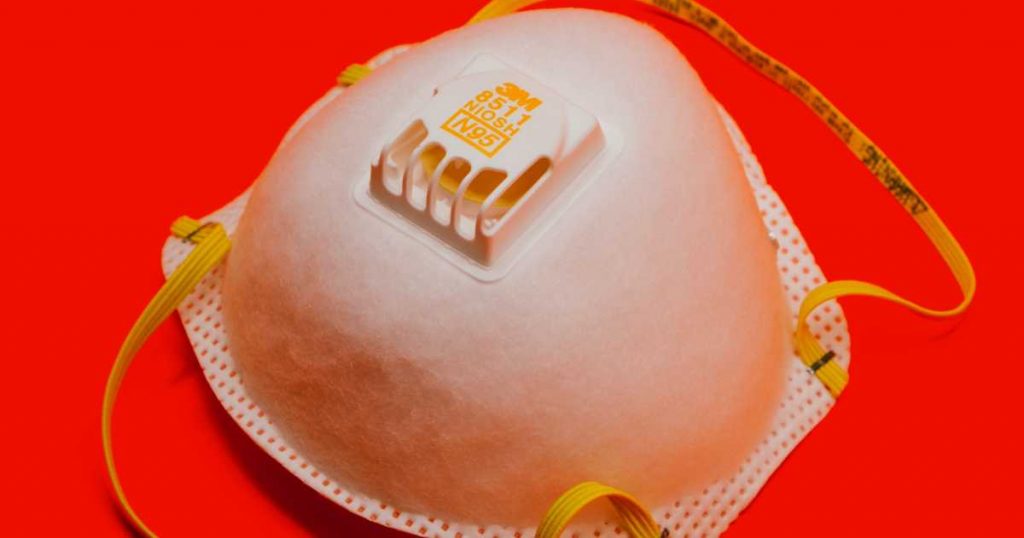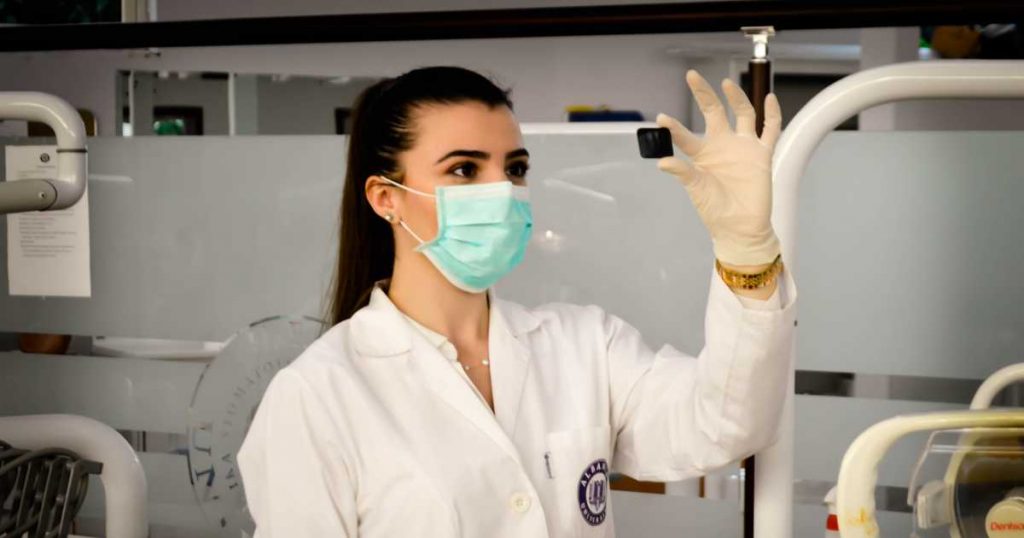There is a serious emergency right now to procure and import PPE. I know.
Manufacturers are overloaded with requests from buyers, and they can’t (won’t) spend much time responding to requests. I know!
Nearly all the importers I talked to were concerned about the manufacturers’ formal authorization to sell PPE and medical gear on their market. But very few wanted to go deeper than that.
However, as you buy products that are actually intended to save lives, should you throw all proper due diligence out of the window? I don’t think so.
You can’t actually test the products, therefore you need to know about the quality systems and the processes
These days, the medical departments of testing labs are very busy with the lucrative work on certifying products (for companies that are new to the PPE market). And they are relatively uninterested in one-off testing requests.
Let’s say you buy masks, and you want these masks to be tested for BFE (Bacteria Filtering Efficiency) based on an existing standard (e.g. EN 149, or ASTM F2010-19). It will take weeks!!
However, you probably need to commit to an order and wire money in a few days. The best you can do is send samples for testing, so as to know the results after delivery (in a few weeks). After all, it is better to pull them from users at that point (should they be found ineffective or highly inconsistent in effectiveness) than never.
If you can’t test the products before shipment, is it enough to look at certificates and lab test reports that are provided by suppliers?
Should you consider you have done your due diligence if you get a confirmation that the documents are not fake?
It sure is better than nothing. That’s the very minimum, and I wrote about it a few days ago.
Having said that, I don’t think any buyer who has a head on his/her shoulders is satisfied with it! As I find myself repeating over and over, these are highly regulated products that, if defective, can lead to deaths!
So, what do experienced buyers do?
They go deeper in their due diligence. They know what the conditions are for the certificates/approvals to be granted (more on this below), and they request information about that. They go on site and look at the factory’s general quality system, process controls, basic hygienic conditions, production capacity, etc.
Let’s take the example of face masks for the USA & Canada, and for the European Union.
Importing surgical masks and respirators into the USA
To be granted access to the US market by the FDA, the manufacturer must maintain an appropriate QMS that includes compliance with GMPs. The requirements can be viewed online.
And, if a manufacturer wants some of its products to be NIOSH approved, they must submit a quality plan and a quality assurance manual.
Now, do manufacturers suggest to their customers “hey, want to look at my QA manual”? That’s not the way it works. The buyer has to request these documents and analyze them.
Importing PPE into the European Union (typically respirators)
Under Regulation (EU) 2016/425 and repealing Council Directive 89/686/EEC, masks are category III items, and it means (among others):
- The manufacturer must set up an appropriate quality management system (including a lot of monitoring activity) that is to be audited by a European approved body.
- The manufacturer must prepare technical documentation about that product, the testing, etc.
Again, it is all publicly available. If you don’t request those papers, if you don’t verify them, and if you don’t send someone on-site to check what their practices really area, you are not trying to make up your opinion.
Not all suppliers that give you a CE certificate are equal!! You need to know which ones are doing a better job, and you need to try and work with those ones.
Importing medical devices (typically 3-ply masks) into the EU
Under Directive 93/42/EEC and of Regulation (EU) 2017/745, even for a class I device, the manufacturer must implement an appropriate quality management system and a technical folder, and can then provide a self-declaration and get a CE certificate. Explanations about this process are available online.
There is less oversight during this process, which means there is a high probability of documents that are never used in practice, of fake records, and so on. I just can’t believe that tens (very probably hundreds) of organizations have ordered millions of such masks without looking at the documents that formed the basis of the CE certificate application (let alone auditing the factory).
China is unhappy about the reception of their products in the West
Since buyers are not doing their work (as I explained above), and since many factories with no prior experience and little concern for quality have been exporting furiously, quality disasters could only blow up. It was inevitable.
In reaction, on 1 April and again last Friday, China decided to tighten the rules for exporting PPE. It is creating delivery delays and reducing the pool of companies that can legally export masks, gowns, infrared thermometers, and so on.
A lot of people in the West are unhappy about it. See, for example, US medical workers sue China for ‘hoarding’ PPE during coronavirus pandemic.
However, isn’t it a good thing to curb the explosive growth in the number of companies making face masks, and stop those that don’t know what they are doing?
Difficulties in performing these more in-depth verifications
Many buyers have inquired about our factory auditing services, but later found out the supplier flat out refused our coming. Most Chinese PPE manufacturers select the “easy customers”. They know they have a short window of time to extract as much profit as possible — they are not working on building a long-term business.
Similarly, many of them refuse any requests for documents that they think are ‘non-standard’, for the same reason.
If that’s your case, either your volumes are not high enough, or you are talking to the wrong companies. Some of these factories do accept on-site audits, reviews of their technical folders, and so forth. Unfortunately, there are not enough of them!
The bottleneck is not the end fabrication, it is the middle layer material production
This CBS article does a good job of describing the difficulty in scaling up the production of the filtering material that goes into respirator masks.
Manufacturers of the material have been pushed to produce at unprecedented levels, straining an industry that relies on complex machinery and specialized training that’s part technical and part “art form,” according to some in the industry.
That’s a key issue.
One of our American clients, who has been purchasing face masks and other PPEs from China for years, shared these comments with me:
When the US news reports that automobile manufacturers and others are going to start making masks, I am more than a little skeptical about the benefit because, unless they are manufacturing their own raw materials, then all they are doing is just taking away capacity from existing manufacturers. They also need to purchase or create all the specialized machinery for making the masks.
If a new manufacturer buys the machinery from a company that makes them, again, that is just taking away capacity from existing manufacturers that are already set up, certified, and experienced.
The CBS article leaves out that people are literally walking into the raw materials factories with bags full of cash trying to get as much as they can. The raw materials for a single box of our masks are increasing in price by over EIGHT DOLLARS next week. That’s per box, not per carton. Prices are already several times higher than normal, and the increase alone is more than double the final cost of the masks under normal times.
So, is China really hoarding PPEs?
The production of the base material that makes respirators effective at protecting users is seriously constrained. China could add another 1,000 lines to fabricate masks, all it would do is add more tension in the supply chain… and more temptation to buy sub-standard filtration material. (Make no mistake, this is very certainly happening these days.) And, in the end, more bad product on the market.
Isn’t it better if the companies that were already making these PPEs in 2019 in good conditions (in a clean room, under a solid quality management system, with people who know the process inside out and keep an eye out for the main failure modes, etc.) can procure all the base material they need as they scale production up? That would be MUCH safer.
And, if China doesn’t buy all the material made by Sinopec, what is wrong with factories in other countries buying it and making end products with it? That’s actually what many people in the US and Europe want to see right now — less dependence on China.
Conclusion
My conclusion? Buyers need to be more discerning because they have allowed a nightmare scenario to come to life. And China’s regulations might actually be going in the right direction.
If Beijing’s next move is to close 1,000 medical gear factories, I know many in the West will see that as an act of aggression. But let’s pause and think. The situation might be more complicated than it seems. Does that make sense?
Are you striving to import PPE and other medical supplies from China right now? What has been your experience? Please share your comments and questions or contact me.
Disclaimer
We are not lawyers. What we wrote above is based only on our understanding of the regulatory requirements. QualityInspection.org does not present this information as a basis for you to make decisions, and we do not accept any liability if you do so.
Read even more about importing PPE and Coronavirus medical supplies
Here is a selection of related articles and resources we’ve been creating that will also help you:
- Advice for Buying Face Masks in China without Losing your Shirt
- 9 Reasons Why You Can’t Buy Face Masks with Low Risk in China
- Verifying Certificates for Masks, Gloves, and Other PPE from China
- Buying face masks from China? 5 Examples To Avoid (Sofeast)
- Surgical Mask Inspections: Our QC Checklist [Free Download] (Sofeast)
- What are the effects of coronavirus on importers with a China supply chain? [Webinar] (Sofeast)
- List of Face Mask Manufacturers in China: Our Top 7 Picks (ChinaImportal.com)
- Buying Face Masks and Other PPE from China Just Got a LOT Tougher (China Law Blog)



